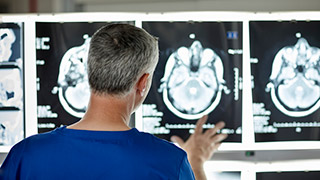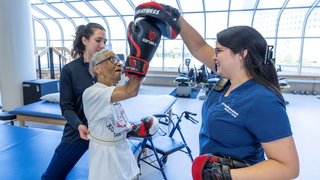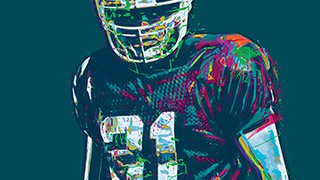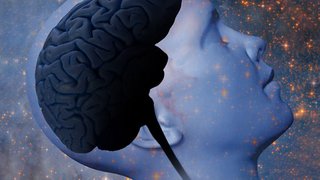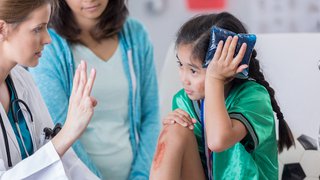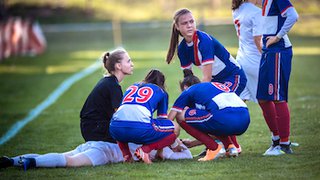Diagnosing Concussion
UT Southwestern physicians diagnose a brain injury and determine its severity by conducting several tests, which can include:
- A physical examination
- Imaging studies such as computed tomography (CT) or MRI scans of the brain
- Neuropsychological tests to evaluate the patient’s cognitive functioning, such as learning, memory, concentration, and problem solving
Treatment for Concussion
Concussion causes temporary dysfunction of brain cells and require rest for a full recovery. Patients can usually recover at home, requiring only rest and over-the-counter pain relievers. Rest is very important after a concussion because it helps the brain to heal – however, too much rest might not be good for recovery.
Although most people recover after a concussion, how quickly they improve depends on many factors, such as:
- How healthy they were before the concussion
- The severity of the concussion
- How they take care of themselves after the injury
- Their age
When a patient’s symptoms have reduced significantly, a gradual return to activities such as work or school is recommended.
A person with a concussion should have someone at home who can provide close monitoring so that follow-up treatment can be provided if symptoms persist or get worse. If symptoms come back or new symptoms develop, a physician should be notified right away.
Considerations for Athletes and Student Athletes
About 10% of athletes participating in contact sports will experience a concussive brain injury. When such injuries happen, allowing time for the brain to heal is key. Whether an athlete has a concussion (or even if one is suspected), it's important to discontinue play or practice.
Whether the athlete is participating in football, soccer, cheerleading, or any other sport, please keep in mind the following:
- No one – except for a health care professional – should try to judge the seriousness of the injury. The player should be seen by a professional experienced in evaluating concussions.
- Coaches and parents should share information they have about the student’s injury.
- Most will recover quickly and fully. However, for some athletes, some effects of the concussion can last for days, weeks, or longer.
- A repeat concussion that occurs before the brain recovers from the first one can slow recovery or increase the chances for serious complications or even death.
- Sometimes people wrongly believe that playing injured exhibits strength and courage. Some athletes might also try to hide their symptoms. Thus, diagnosis is important.
- Don’t let the athlete convince the coach that he or she is “just fine” or that he or she can “tough it out.” In fact, the saying for suspected concussion should be, “When in doubt, sit it out.”
- Playing with a concussion is dangerous, as it can damage brain cells. Pressuring injured athletes to play should be discouraged.
- Young children and teens are more likely to get a concussion and take longer to recover than adults.
- Athletes who have had a concussion are at increased risk for another concussion.
- Recognition and proper response to concussions when they first occur can help prevent further injury or even death.
- Allow the brain time to heal. This means keeping the athlete out of practice or the game the day of the injury. An athlete diagnosed with a concussion should only return to playing sports with permission from a doctor.



